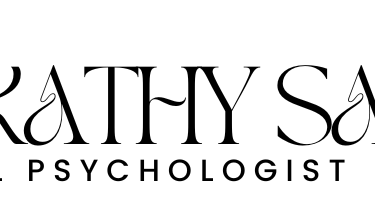
Finding the Right Path Forward . . .
Welcome to my practice! My specialty is providing guidance through formal and informal evaluation and "Next-Step" guidance sessions with a goal of helping parents understand their children, and adolescents & adults better understand themselves and take meaningful next steps in life.
With Kathy Glash Sawyer, Ph.D.
Dr. Kathy Sawyer | Clinical Psychologist | KathyGSawyer@gmail.com | 210-325-0120

Services Provided
With over 28 years of practice in San Antonio, Texas and Bend, Oregon, I have specialized in the evaluation of learning difficulties and attentional issues, the identification of gifted and talented students, and the diagnosis of twice-exceptional students (GT students with a learning, cognitive, or emotional diagnosis).
Informal Targeted Evaluation:
For parents who only wish to better understand the learning picture of their student and do not expect that formal accommodations will be needed, a similar evaluation can be conducted that is shorter in length and write-up, thus reducing the cost, but yielding very helpful information for their academic path.
Next Step Guidance (NSG):
Choosing the next step in life can be a big challenge, whether it be deciding to pursue college after high school, hone in on a college major, choose a career path or a next job, or in deciding to return to the working world when one has been absent for a time.
NSG is a discussion-based process that can involve evaluation if needed. The client's story & life situation as well as any testing results are used to add insight into options and help decide the next step. Continued support is offered as one travels down the chosen path.
This process can involve a scaled down version of a comprehensive evaluation that focuses more on intellectual/cognitive abilities, personality inclination, and career interests. Information from Human Design can also be incorporated here. This can be a good graduation gift.
It is noted that this is not a standardized psychological treatment, is not based on research, nor is it a part of my training/practice as a psychologist. It has grown from my many years of practice and deep interest in spirituality, especially at this time.
Formal Comprehensive Evaluation:
These comprehensive evaluations are for those looking for formal accommodations in school, on national examinations, or on examinations required to advance in the workplace. Career interest testing can also be an option here.
Integration sessions are offered for all of the above to help the client, family, and/or student better understand the results of the evaluation, how to integrate this information into their lives moving forward, and as support along their path. For example, how to develop a lifestyle that maximizes productivity in light of how ADHD presents in one's life.
Integration Sessions:
Baseline Evaluations:
This is a short evaluation that focuses on intellectual aptitude and memory that can be used as baseline data in later years should the adult be involved in an accident or become concerned about their cognitive functioning and ability to handle the more complex tasks of modern daily life. It provides a comparison to help illuminate what changes have occurred in the succeeding years.
I've had the opportunity to learn the art of therapeutic evaluation, the value of comprehensive assessment, and how to write reports with lots of graphics that enhance the reader’s understanding of both the strengths and challenges of a student or oneself.
Over the years, parents have reported back to me the value of this investment in their student(s). Once a student truly understands their strengths and challenges, I have seen them settle into both their sense of identity and their motivation for school. What was once a cloud of confusion about school performance and wondering whether they are smart enough, evolves into a new sense of clarity about what they bring to table and why they have been struggling. Solid gains in self-confidence and a sense of competence are often seen.
Learn More

Some Things to Think About Before Moving Toward an Evaluation
I am not working with insurance, in part because they often do not pay for these evaluations, only pay for part, or the paperwork is very exhausting. Yes, I’m ADHD and know myself well enough at this point to know that this sort of paperwork becomes a huge burden and is not something I want to manage. But that doesn’t mean that you can’t use your insurance to be reimbursed for what you pay me. I will always give you a “superbill” that contains all the information you need for reimbursement.
If you choose to go the insurance route:
Always talk to your insurance company first if you want to be reimbursed for parts of the evaluation.
Insurance often does not pay for this kind of evaluation in total. As noted above, they can sometimes pay for different parts or pieces. It is important to first talk to your insurance company to see what they will cover, as often only the cognitive or emotional pieces are considered for reimbursement, and not the academic.
When you talk to your insurance company, be sure to tell them about any possible diagnoses that you feel are on the table. Examples are ADHD/ADD, anxiety, depression, and learning difficulties. Be prepared to be told that testing for learning disorders is not covered.
I am comfortable testing school-aged children from the 4th grade and older, and also work with college and post-college learners who are studying for the LSAT, MCAT, or other job-required examinations.
Understanding the cost: My hourly rate for evaluations is currently $200 per hour for all face-to-face meetings, 1-2 hours for scoring and interpretation, and 6-8 hours for report writing - reports for graduate level accommodations can take longer to produce and thus are at the upper end of these hours noted above.
I usually first meet with the parents or the older student to gather a good history and understanding of the student and their struggles and needs. This usually lasts about an hour.
Comprehensive testing typically lasts for 9-12 hours and is typically broken down into 2-3 hour sessions depending on the age of the student. Targeted testing, usually for retesting to support accommodations in place will be shorter in length and varying according to the number of diagnoses.
I have found that the older the student, the smarter the student, and the slower the student works can lead to longer testing hours and increased expense, as we tend to move through more testing questions.
When the testing is done and the report written, I meet to discuss the findings with parents, the student, tutors, teachers, etc. as necessary. These meetings usually lasts about 2 hours.
Once we have made an appointment, I will send you a packet of information to read and some forms to fill out.
If you can, please try to fill them out before your first meeting with me, but if life goes sideways, then don't worry about it. Just please read and sign the informed consent portion before you meet with me.
Please bring with you copies of any previous evaluations of any time, report cards, teacher comments, tutor’s comments, etc.
If you have the time and energy, make a list of what you see that is frustrating for your child, for you, areas of struggle, areas of strength, etc. You can also made a recording of your thoughts and send the audio file to me.
The Evaluation:
If the person being tested typically takes medication, then it is best if they are on this mediation for the testing sessions. The testing is used to show the need for accommodations thus the student should be in the state that they will be in when they will take any examinations.
It is important that they get good rest the night before the testing.
Testing will not typically be conducted after the school day due to fatigue. There are exceptions to this that can be discussed.
Testing sessions are typically 1 to 3 hours at most, the length is calibrated to the age of the student being tested, and the student is carefully monitored for signs of fatigue during the testing. Long lunch breaks between sessions are recommended so that they get good rest and recuperation. Fatigue is important to monitor so that it does not influence test results.
Areas assessed:
Intellectual Aptitude (IQ)
Cognitive abilities such as:
Auditory/Visual Working Memory (for ADHD)
Auditory Processing (screening) and Verbal Fluency
Visual Processing (screening)
Processing Speed
Fine-Motor Coordination
Visual-Spatial Functioning
Learning; Auditory/Visual Memory.
Academic Skills: Reading, Writing, and Mathematics
Personality and Emotional Functioning
Career Interests (optional)
I work out of a home office and have a very friendly border collie (Shay/Sashay) and cat (Mocha) who love to meet new students. Please let me know if allergies are a concern for you.
It would be my pleasure to work with you and/or your student. My practice is part-time at this point and I can only accept a very limited number of students a month to assess, so please contact me sooner rather than later if you are interested in an evaluation.

Some Things to Think about Before Moving toward Next Step Guidance
My rates for Next Step Guidance (NSG) are as follows:
$125 for a 55 minute session. This is the length of a typical "hourly" session.
$177 for a 80 minute session (1 hour & 20 minutes).
Next Step Guidance is not meant to be traditional psychotherapy. It is not based on traditional psychological practices, though it may include elements of them. Because it is considered an alternative treatment, it is not a part of my clinical psychology practice.
It is a short-term model of intervention that utilizes any needed evaluation to help the client better understand themselves.
Additionally, it may include non-research based methods such as information from Human Design and/or Gene Keys, techniques from Biofield Tuning, as well as more "spiritual" practices such as meditation, heart-centered focus, etc. It is not meant to be allied with any specific religion but adaptations can be made to fit within the spiritual beliefs of the client as they desire. But my approach does include the assumption that there is more to us than just our physical bodies.
As noted above, I do not currently bill insurance but can provide you with documentation of our sessions if you wish to seek reimbursement. As this is not traditional psychotherapy, it may not be easy.

What They Said
When we were searching for a psychologist to administer testing for my daughter several years ago, the school counselor handed us a list of potential resources. I’ll never forget how he described the names on that list: “All of these practitioners are very good, but there’s one who is like the Cadillac of the group— and that’s Kathy Sawyer.” In reality, Dr. Sawyer (Kathy) exceeded even that high praise.
Kathy not only conducted one of the most thorough assessments I’ve ever experienced for my daughter, and later, for my son, but also provided us with invaluable resources and guidance to navigate the challenges of her learning disabilities. Her brilliance, thoughtfulness, and kindness stood out at every turn. She went beyond the scope of testing to truly partner with us as a family, offering insights and strategies that not only supported my children but also empowered me as a parent.
Kathy’s holistic systems-based approach gave us the foundation we needed to help our daughter address and navigate her learning differences. Thanks to her, my daughter, who started working with Kathy in seventh grade, is now a thriving high school senior who has learned to successfully manage her learning differences and is thriving academically. Kathy’s influence has been instrumental in shaping the progress and confidence we see in her today.
Over the years, our connection with Kathy has grown into a genuine friendship because it’s clear she doesn’t just care about her patients; she cares about their families, too. She always over-delivers and probably doesn’t charge enough for the exceptional value she provides. I wholeheartedly recommend Dr. Kathy Sawyer. I would trust her with your children, knowing that she will care for them as deeply as you do.
My wife and I used Kathy’s services for all three of our children. We thought she was very knowledgeable and extremely thorough, as well as easy to work with. Our children found her to be relatable as well as like-able. In the many years of raising our children, she was the best resource we were able to find. We would highly recommend her services.
More Reviews to Come...
I am still so appreciative of the insights we gleaned from your report on our sweet son! He has done so well and a lot of that is due to understanding his natural gifts and abilities. We continue to be grateful for you and the work you do with families.

About Me
Raised in Houston, Texas, Dr. Sawyer earned her B.S. in Mathematics from Bucknell University in Lewisburg, Pennsylvania in 1984 and her Pennsylvania Teaching Certification in Secondary Education (Mathematics) in 1985.
Following her undergraduate graduation, she spent 6 months in Harare, Zimbabwe teaching a local organization how to use and program their new DEC desktop computer. Returning to Houston, she worked for a computer company that had develop a hardware/software security solution for the newly emerging hard drives.
She went on to graduate work in 1987, studying first theology in Boston, then psychology in Los Angeles, and completed hospital chaplaincy training at Long Beach Memorial Medical Center.
In 1995, she earned her M.A. & Ph.D. in Clinical Psychology from Fuller Graduate School of Psychology, an APA-accredited program in Pasadena, California. She also earned her M.A. in Theology from Fuller School of Theology in 1993.
For her clinical training, Dr. Sawyer completed practicums in gerontology and adult chronic mental illness, and a clerkship in assessment at Long Beach Memorial Medical Center (in-patient and out-patient assessment). She also worked part-time at a center for the chronically mentally ill in Pasadena. She went on to complete a yearlong, full-time pre-internship training experience assessing children and adolescents in Austin, Texas for learning and emotional disorders. She completed an APA-accredited internship at the Audie Murphy VA in San Antonio Texas with a strong emphasis on neuropsychology, and a post-doctoral residency assessing children and adolescents at Deer Oaks Mental Health Associates in San Antonio.
Dr. Sawyer was licensed by the Texas State Board of Examiners of Psychologists in 1996 (#25601). From 1996 through 2002, she worked for Counseling Services at the University of Texas at San Antonio (UTSA) as Staff Psychologist, Assistant Director and Director; for a short time she was Assistant Director for Health and Counseling Services. In addition to managing a very busy counseling center and its budget, her clinical duties included psychotherapy and learning disability assessment as well as the supervision of trainees at all levels engaged in such activities. In addition, she has maintained a part-time private practice since 1998.
In 2002, Dr. Sawyer left UTSA to marry Colonel (ret.) James Robert Sawyer (Army; Medical Services), travel, and work in her private practice with an initial focus on learning disability evaluation and psychotherapy. She was awarded Fellow status with the Bexar County Psychological Association in 2009, with whom she has served as Treasurer, President-Elect, President and Past-President.
Over the years, Dr. Sawyer built a successful practice in San Antonio, focusing largely on the assessment of Twice-Exceptional (2e) students who are both Gifted & Talented as well as having a diagnosis of a learning, attentional, and/or emotional disorder. She worked frequently with students from St. Mary’s Hall, a premier private school in the area.
Beginning in 2015, her husband’s health slowly deteriorated and he was ultimately diagnosed with 3 kinds of dementia (Vascular, Lewy Body & Alzheimer’s) as well as heart and lung failure. He was finally released of this struggle in December of 2018. Dr. Sawyer, grateful for the support of the Lewy Body Caring Spouses group, helped to re-start the Life After Lewy Support Group and became a moderator as she worked through her own loss.
Following the passing of her husband, too many knee/shoulder surgeries, and the Covid-19 pandemic, Dr. Sawyer moved from San Antonio, Texas to Bend, Oregon to be with family and help out with the homeschooling of her youngest granddaughters. She was licensed by the Oregon Board of Psychologists in 2022 (#3553) and is building a practice based in Bend, Oregon, following a home remodel to create some comfortable work and play spaces.
Unable to resist learning new things, Dr. Sawyer is currently studying Biofield Tuning, Human Design, Gene Keys, Astrology, and Neurodivergence. She is a strong believer in the ultimate positive outcome of these chaotic, challenging, and changing times, and the rise of compassion and new ways of being in community.
Looking For a Personalized Assessment?


With 28 years of experience, Dr. Kathy Sawyer specializes in the evaluation of learning differences, attentional issues, and identifying gifted students in Texas and Oregon.
Contact Dr. Sawyer to schedule a consultation call!


